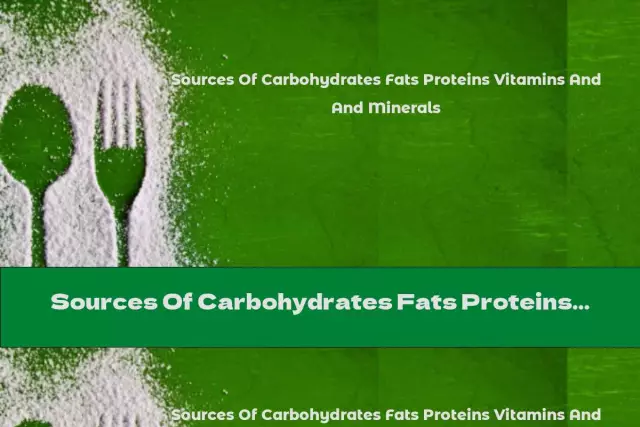- Author Rachel Wainwright wainwright@abchealthonline.com.
- Public 2023-12-15 07:39.
- Last modified 2025-11-02 20:14.
White cabbage
White cabbage is the most common crop of all cabbage varieties. It is grown almost all over the world, especially in countries with a temperate climate. In our country, cabbage is grown in every yard where there is a vegetable garden, and is always present in every house where there is a refrigerator. Without this vegetable, it is difficult to imagine winter and spring, the periods when cabbage is the main source of vitamins and plant fibers for humans. Both children and adults can eat white cabbage without restrictions.
The ratio of BJU in the product

Source: depositphotos.com How to burn 25 kcal?
| Walking | 6 minutes |
| Jogging | 3 min. |
| Swimming | 2 minutes. |
| A bike | 4 minutes |
| Aerobics | 5 minutes. |
| Household chores | 8 minutes |
Useful properties of white cabbage, calorie content
The beneficial properties of white cabbage are in its composition, a combination of important vitamins and minerals necessary for a person. It is the most readily available fresh vegetable, rich in phosphorus and potassium salts. White cabbage is completely safe for children with food allergies, as it is so widespread among them.
Cabbage also retains all the beneficial properties in sauerkraut, because The sugar contained in cabbage, when fermented, forms lactic acid, which has preservative properties.
Cabbage contains the following elements:
- Sugar;
- Cellulose;
- Protein;
- Carotene.
The vitamins in the composition provide the beneficial properties of white cabbage. So, it includes vitamins: C, B1, B2, B3, K, PP.
Along with the low calorie content of white cabbage, it surpasses carrots, beets, rutabagas, turnips in protein content. Cabbage proteins have essential amino acids (methionine, lysine, threonine), which are necessary to stimulate the functions of the kidneys and adrenal glands, and the thyroid gland. The beneficial properties of white cabbage are in its positive effect on the process of hematopoiesis in the body, as well as on the growth and restoration of lost and damaged tissues.
A distinctive feature of the beneficial properties of white cabbage is the presence of vitamin U (methylmethionine), which allows you to treat stomach and duodenal ulcers, gastritis, colitis, and activates the liver. White cabbage is rich in vitamin K, which is essential for proper metabolism. Promotes wound healing, better blood clotting, bone formation and dental health, and regulates liver function. White cabbage is especially valuable with vitamin C, which remains in it for a long time and does not lose its properties, therefore, in winter, white cabbage can be given to children and adults as a vitamin agent.
The low content of starch and sucrose allows you to include white cabbage in the diet of diabetics. Cabbage helps to increase the secretion of gastric juice from the stomach. The fiber in white cabbage enhances intestinal motility, so it is useful for everyone who has problems with constipation and hemorrhoids. A useful property of white cabbage is also the fact that the fiber in its composition helps to eliminate cholesterol and toxins, and this, in turn, prevents the development of atherosclerosis.
For those who monitor their figure and weight, the low calorie content of white cabbage is perfect for dieting. White cabbage is slightly higher in calories than zucchini, a well-known dietary product, and much lower than most vegetables and fruits, not to mention other foods.
The calorie content of white cabbage per 100 grams of product is 28 kcal.
Eating white cabbage
The beneficial properties of white cabbage and its low calorie content have been used since ancient times in the cooking of many peoples, and therefore cabbage is the most popular and sought-after vegetable. Various salads are prepared from raw cabbage, fermented, pickled, stewed, boiled and baked, it is the basis of many dishes.
White cabbage is valued not only as a vegetable, but also widely known as a medicinal plant. The high fiber content in cabbage has a beneficial effect on the gastrointestinal tract and removes cholesterol from the body. Sauerkraut, with its beneficial properties, is the first cure for a hangover, and it is also recommended to eat cabbage before a meal to reduce the effects of alcoholic beverages.
Due to the low calorie content of white cabbage and its beneficial properties, this vegetable can be used in the menu of sick people and children. Children can begin to introduce white cabbage in boiled and stewed form, since in its raw form it can cause intestinal distention. Gradually, after 1.5 - 2 years, you can give children white cabbage and fresh, in salads.
Raw white cabbage leaves are often used externally as an anti-inflammatory agent by applying them to the site of pain.
The beneficial properties of white cabbage help with the following health problems:
- Burns;
- Bruises;
- Inflammation of the ligaments;
- Dislocations;
- Gout;
- Rheumatism;
- Inflammation of the joints;
- Headaches;
- Ulcers and purulent wounds.

White cabbage as an external agent has a number of pharmacological actions:
1. Pain reliever;
2. Anti-inflammatory;
3. Stimulates metabolic processes in the body.
The beneficial properties of white cabbage are used in therapeutic diets for various diseases:
- Atherosclerosis;
- Cardiac ischemia;
- Gout;
- Cholelithiasis;
- Diseases of the heart and kidneys;
- Gastritis with low acidity;
- Constipation.
Contraindications for the use of white cabbage
The beneficial properties of white cabbage can have a negative impact on health for the following disorders and diseases:
1. Increased acidity of gastric juice;
2. Enteritis;
3. Colitis;
4. Diarrhea;
5. Myocardial infarction.
White cabbage is allowed for children after one and a half years. The digestive system in children is especially sensitive to gas, and white cabbage can cause colic and bloating.
YouTube video related to the article:
Found a mistake in the text? Select it and press Ctrl + Enter.






